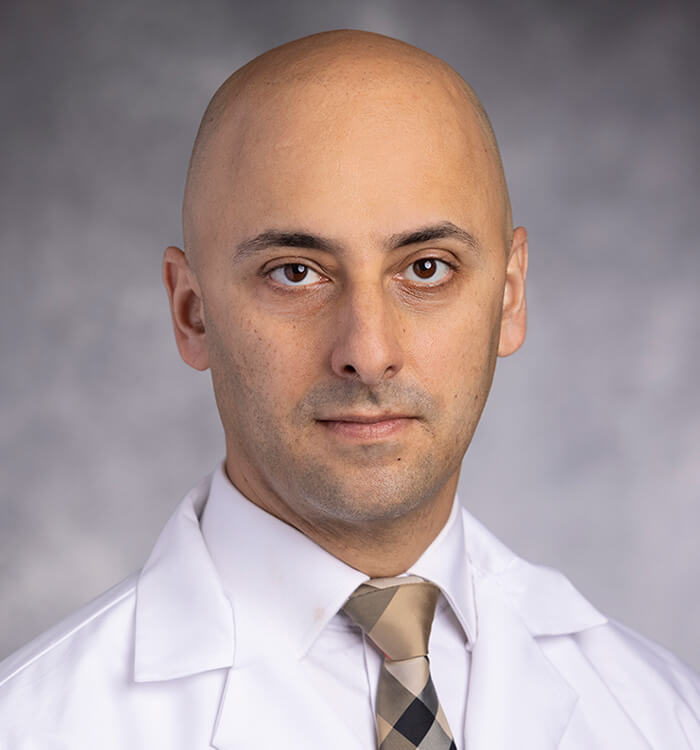Inspire Neurostimulator Approved to Treat Obstructive Sleep Apnea in Pediatric Patients with Down Syndrome
December 03, 2023
Innovations in Ear, Nose & Throat | Fall 2023
The Food and Drug Administration (FDA) has expanded its approval of the Inspire® neurostimulation device for the treatment of obstructive sleep apnea (OSA) to include pediatric patients with Down syndrome.
Inspire Medical Systems Inc.’s minimally invasive hypoglossal nerve stimulation device was initially FDA-approved to treat severe OSA in adult patients in 2014 and is now available to appropriately selected patients with Down syndrome as young as 13. The announcement came on World Down Syndrome Day and represents an encouraging treatment advancement for a patient population that struggles with severe OSA.
 Thomaz Fleury Curado, MD
Thomaz Fleury Curado, MDAccording to the National Down Syndrome Society, prevalence of sleep apnea in children with Down syndrome may be as high as 53 to 76 percent, compared to less than 5 percent in the general population.
“The expanded approval of Inspire is absolutely welcome as a possible treatment option for the pediatric Down syndrome population at high risk for sleep apnea,” says Thomaz Fleury Curado, MD, a craniofacial surgeon and otolaryngologist within the Department of Otolaryngology–Head and Neck Surgery at University Hospitals Cleveland Medical Center. “We are excited to offer Inspire to these patients at University Hospitals because we know that sleep is fundamental to cognitive and physiological development in childhood and adolescence.”
Risk Factors for OSA in Down Syndrome
 Jay Shah, MD
Jay Shah, MD“It is recommended that children born with Down syndrome have a sleep study by age 4 because multiple factors contribute to their risk for severe OSA,” says Jay Shah, MD, a pediatric otolaryngologist within the UH Department of Otolaryngology–Head and Neck Surgery and UH Rainbow Babies & Children's Hospital.
Anatomical features common in patients with Down syndrome that may affect OSA risk include:
- Brachycephalic facial structure
- Macroglossia
- Low muscle tone
- Narrow nasal passages
- Enlarged tonsils and adenoids
- Redundant palatal tissue
Current Treatment Options
Continuous positive airway pressure (CPAP) remains the gold standard for treating severe OSA, but many children and adolescents with Down syndrome struggle to comply with wearing the CPAP mask each night. While procedures are available to modify the tongue, larynx or jaw, they often require invasive surgeries.
“The results for some of these procedures are not that well-established,” says Dr. Fleury. In contrast, studies of Inspire show a reduction of the apnea-hypopnea index (AHI) by at least 50 percent in the majority of patients.
“We don’t need the events to go down to zero, but achieving a significant decrease means these patients will improve their quality of life,” he says.
Ideal Candidates for Inspire
Inspire has been successfully implanted in adult patients with Down syndrome for several years. Now, it is available to patients who are at least 13 years old with an AHI between 10 and 50 who are unable to benefit from CPAP.
“Because of their unique anatomical features, including an enlarged tongue and issues with weak muscle tone, the thought is that pediatric patients with Down syndrome could be ideal candidates for Inspire,” says Dr. Shah. “The device essentially works as a pacemaker to stimulate the tongue and keep the upper airway open.”
The Inspire programmable stimulator is implanted into the chest wall under general anesthesia. A pressure-sensing lead detects breathing, and a stimulating lead delivers mild impulses to stabilize the airway. The device is activated during a post-operative sleep study and controlled at bedtime via a small, handheld remote.
The Importance of Addressing OSA
“It is common to see pediatric patients with Down syndrome who experience severe sleep apnea and struggle with problems associated with inadequate sleep,” says Dr. Fleury. “This is also a population with specific risk for poor cardiovascular outcomes that, when combined with untreated sleep apnea, is likely to shorten life span.”
Additionally, poor sleep quality impacts psychosocial factors that affect the entire family. “It is well-established that lack of sleep can lead to mood disorders,” says Dr. Fleury. “When kids are not getting proper sleep, we often see emotional distress, tantrums, hyperactive behaviors or discipline problems in children with Down syndrome, as well as neurotypical children. To be able to provide a solution that eases that burden for families is very rewarding.”
For more information about Inspire, please call 216-844-7378.
Contributing Experts:
Thomaz Fleury Curado, MD
Craniofacial Surgeon
Otolaryngologist
Department of Otolaryngology–Head and Neck Surgery
University Hospitals Cleveland Medical Center
Assistant Professor
Case Western Reserve University School of Medicine
Jay Shah, MD
Pediatric Otolaryngologist
UH Rainbow Babies & Children's Hospital
Department of Otolaryngology–Head and Neck Surgery
University Hospitals Cleveland Medical Center
Associate Professor
Case Western Reserve University School of Medicine


